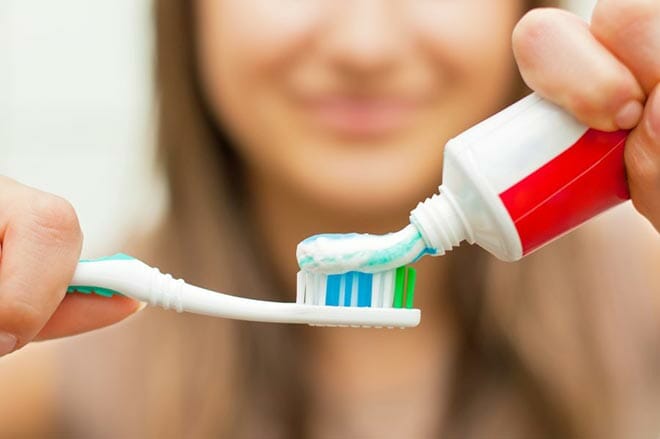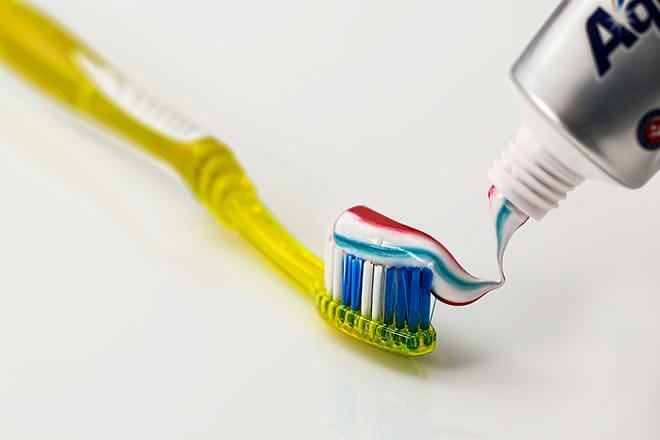
Imagine brushing your teeth with toothpaste composed of rainwater, pumice, powdered ox hooves and eggshells crushed using unsanitary pestles and mortars. Whoever invented this “toothpaste” later decided to improve its ability to remove debris by adding pulverized oyster shells and crushed animal bones. Would you brush your teeth with this unsanitary mixture or simply decide to wipe your teeth with a piece of cloth and not take the risk of becoming sick with a bacterial disease?
Improved Toothpastes Didn’t Happen Quickly
Unthinkable as it is today, this is the kind of toothpaste the ancient Greeks and Egyptians used to clean their teeth. Since no industry regulations existed to oversee the production of this toothpaste, historians are certain numerous infections resulted from ingredients tainted with bacteria and fungal pathogens. It wasn’t until the late 19th century that toothpaste manufacturing evolved from crushing bones and hooves in wooden bowls to making less contaminated, more palatable toothpaste and placing this “new” toothpaste into collapsible tubes. Unfortunately, the first tubes of toothpaste were mostly made from lead, which posed a further health hazard to unsuspecting consumers.

How SaniClean Strainers Contribute to a Healthy, Safe Toothpaste Industry
Today’s toothpastes contain humectants, sudsers, abrasives, binders, sweeteners and flavorings. Ingredients meant to maintain dental health include sodium fluoride, novamin (bonds to teeth surfaces to protect sensitive enamel) and anti-bacterial triclosan. Tooth whitening substances such as carbamide peroxide or hydrogen peroxide provide minimal whitening effects without harming teeth enamel. Manufacturing of toothpaste involves three basic steps: measuring and mixing of ingredients, filling toothpaste tubes and packaging/shipping of the finished product.
SaniClean self cleaning water filtration systems and strainer systems utilized throughout the making of FDA-regulated toothpastes ensure compliance with rigorous pharmaceutical standards and deliverance of safe, hygienic toothpaste to consumers. Suitable for implementation in an extensive variety of applications, SaniClean’s self cleaning strainer handles nearly all levels of production capacities from high production results to slower flow rates. Readily integrable with existing machinery, our strainer cleaning systems are made of stainless steel (316L) or can be customized to include corrosion resistant alloys if needed.
Prevent Particulate Matter from Contaminating Toothpaste
Anti-bacterial ingredients and preservatives in toothpastes are meant to reduce oral bacteria populations conducive to tooth decay and gum disease. These ingredients cannot eradicate pathogens existing in water and other fluids used in producing toothpaste. In addition, pathogenic particulates can easily infiltrate toothpaste at any time during the production process. When self cleaning water filtration systems are incorporated in toothpaste processing machinery, production rates increase, product quality is optimized to the fullest and replacement filter costs are eliminated. More importantly, preventing potentially infectious debris from infiltrating toothpaste products means facility owners are actively engaged in safeguarding the safety and health of both production operators and consumers.

In Summary
- Unhygienic toothpaste made from organic ingredients used thousands of years ago may have caused widespread illness and infection
- Toothpaste production today is highly regulated by the FDA and establishes rigorous compliance guidelines regarding sanitary practices to prevent illness
- SaniClean Strainers offer a variety of industry compliant strainers that act as the perfect toothpaste processing equipment and easily and affordably accommodate most toothpaste production processes
Call SaniClean Strainers Today to Learn More About the Self Cleaning Water Filtration Systems and Products We Offer
For over 100 years, SaniClean Strainers has provided state-of-the-art strainer systems to world industry leaders involved in chemical processing, canning, food manufacturing, pharmaceutical research and development and many others. When you need to replace ineffective or noncompliant strainer systems in your toothpaste manufacturing facility, call our company for immediate help with selecting and implementing superior strainer cleaning products. We will help provide you with the top-quality toothpaste processing equipment perfect for your business’s specifications every time.
